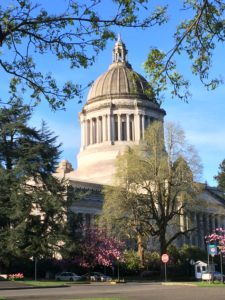Action Alert on WA ESSB 5513 to Increase Tax Exemption Transparency and Accountability.
ESSB 5513 on Tax Exemption Transparency and Accountability was passed last week by the Senate on a 47/0 vote. It is now in the House.
Your help is needed now. Please contact your LD State Representatives to urge support for ESSB 5513 bill. To contact your own Representatives and leave a comment click on this link ESSB 5513 Washington State Legislature website at www.leg.wa.gov , click on “find a bill”, type in 5513, and on the bill page click on the link “comment on this bill”
Also contact Rep. Larry Springer on the House Finance Committee and urge he support this bill without amendments to weaken it. His e-mail is larry.springer@leg.wa.gov
ESSB 5513 would take a significant step forward in providing more updated and current information to the Governor, the Washington State Legislature and the Public regarding Tax Expenditures aka Tax Preferences. The Senate Bill Report on ESSB 5513 has a good summary of what the substitute bill does:
“Summary of Engrossed First Substitute Bill:
The DOR Tax Exemption Report (Report) is updated every two years instead of every four years. The Report must include recommendations by JLARC and the Commission if the tax preference has been reviewed.
The November budget outlook materials must include the projected fiscal impact of discretionary tax preferences in the current biennium and subsequent biennium. The summary must separate discretionary tax preferences by category—business incentive, agriculture, nonprofit, etc.—as provided in the DOR Report.
The Governor’s budget documents must include a detailed listing of discretionary tax preferences and the listing must be included on the websites of the Office of Financial Management, Economic Revenue and Forecast Council, and Office of the Governor. The listing must provide the following information:
-a brief description of each discretionary tax preference;
-prior and future estimated fiscal impacts for each discretionary tax preference;
-the stated public policy objective, if any, of the discretionary tax preference;
-and any recommendations by JLARC and the Commission with regarding to continuing, modifying, or eliminating the discretionary tax preference.
Discretionary tax preference is defined to be a tax credit, exemption, deduction, or preferential tax rate, which is not required by the state constitution, United States Constitution, or federal law. ”
www.Taxsanity.org like on facebook – Tax Sanity Steve Zemke – Director

